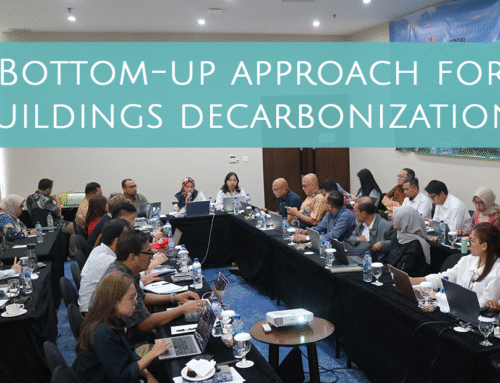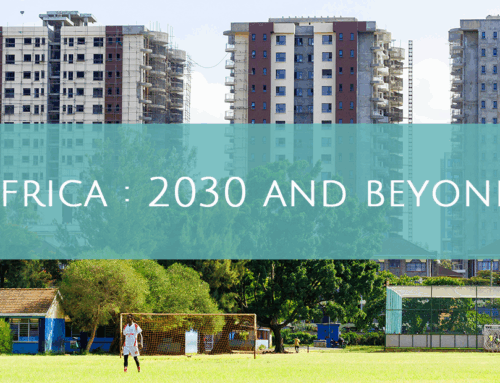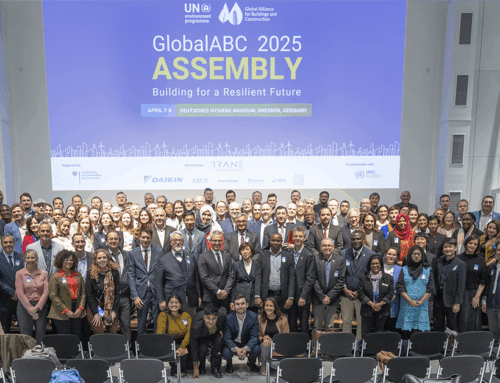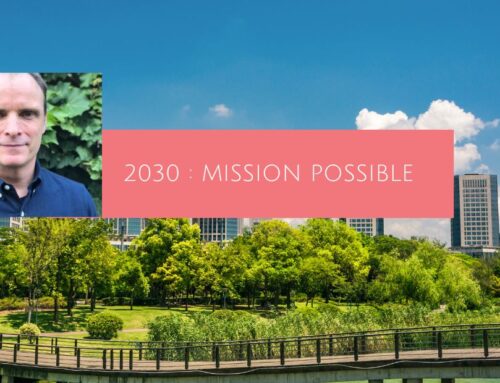By: Dr Peter Graham
What comes to your mind when you think of adequate housing? Spacious? Thermally comfortable? Adequate housing is that and much more.
According to International Charter for Human Rights, to be deemed adequate, housing must be ‘habitable’ and ‘accessible’, meaning that it provides all people – including disadvantaged groups – with adequate space, and protects them from “…cold, damp, heat, rain, wind or other threats to health, structural hazards, and disease vectors”. The physical safety of occupants must also be guaranteed.1 However, increasingly extreme climate conditions put the adequacy of our existing housing stock under pressure and must reset what we demand as ‘minimum performance’ in building regulations.

Illustration by Peter Lewis
Adequate Housing Must be Future Proof
To be ‘adequate’ in the face of climate emergency housing needs to be fit for future climates. It should provide thermal comfort, refuge from extremes and improve health through bioclimatic design, renewable energy, and technologies like grid-interactivity. However, access to sustainable housing is far from universal.
According to article 25 of the International Charter of Human Rights, every individual has the right to adequate housing. As temperatures around the globe become more extreme, poor climatic design, increasing energy use, unsustainable construction materials and standards fuel further climate events, increasing the vulnerability of millions to climate-related risks globally. This status quo is undermining our human rights and increasing GHG emissions.
Addressing this imbalance is a key driver for the policy reform programs GBPN is working on in parts of the world with the fastest growing building footprints.
- In India our Healthy Buildings Healthy Lives program is developing guidelines on implementing simple low-cost design changes in buildings, including orientation, insulation, shading, and natural ventilation to reduce cooling loads in affordable housing.
- The ‘CELLULAR’ Policy Living-Lab initiative in collaboration with the Regulatory Assistance Project (RAP) will trial design, construction and technology innovations and test grid-interactive renewable electrification to provide demand-side flexibility and zero-emissions affordable housing across India.
- In Indonesia GBPN is supporting the national implementation of Indonesia’s green building regulations, and piloting policy recommendations to increase investment in sustainable housing. Sustainable building practices not only reduce carbon emissions but also deliver substantial physical and mental health benefits, as evidenced from the testimony of residents in affordable sustainable housing in Jakarta, Indonesia.
We are facing a global climate emergency and the actions we take today will determine whether our building stock is fit for purpose tomorrow.
Share This Story, Choose Your Platform!
Stay in touch with how we’re transforming the buildings sector
GBPN runs innovative building policy reform programs in key regions around the world that aim to tackle the climate emergency by decarbonising the buildings sector. Stay up to date with our newsletter.
Stay in touch with how we’re transforming the buildings sector
GBPN runs innovative building policy reform programs in key regions around the world that aim to tackle the climate emergency by decarbonising the buildings sector. Stay up to date with our newsletter.








